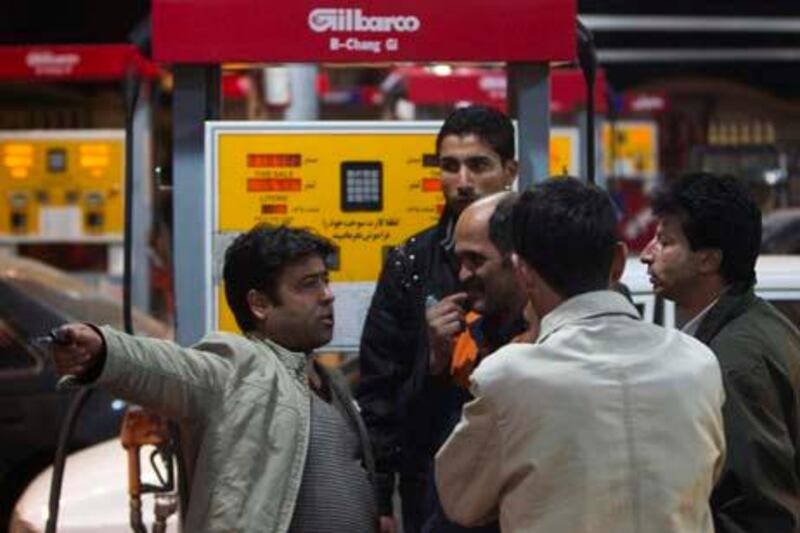Iranian petrol prices have surged four-fold as the government starts scrapping subsidies as part of a long-awaited overhaul of the economy, despite staunch opposition from conservatives.
The move comes after much debate and strong opposition from part of the Iranian parliament which had criticised the plan as inflationary at a time when the economy was reeling under sanctions and high unemployment.
Police and security forces were deployed across main squares and fuel stations in Tehran to prevent any violence as the new fuel price regime came into force today.
Motorists were hardest hit by the policy change, which sent petrol prices soaring to 4,000 rials (40 US cents) from 1,000 rials per litre for the 60 litres they receive as a monthly quota, state television reported on its website.
They now have to pay 7,000 rials per litre for any extra petrol they require.
Iran's Mehr news agency said the price of jet fuel was now set at 4,000 rials per litre for domestic flights and 7,000 rials for international flights. Diesel prices jumped to 1,500 rials from 160 rials, the television reported.
Mohammad Reza Farzin, a spokesman for the subsidy plan, said the average price of household electricity was now 450 rials per kilowatt an hour, water 250 rials per cubic metre and cooking gas 700 rials per cubic metre.
"The expenses (for households) will depend on consumption. The lesser the consumption, the lesser the cost will be," Mehr quoted him as saying.
The Tehran municipality announced the rise in fuel prices would not lead to hike in fares of public transport such as the metro rail network, buses and taxis plying in the capital, media reports said.
The government plans to phase out subsidies on energy products petrol, diesel, gas, kerosene and electricity, and food items such as water and bread as part of the overhaul which had been in the pipeline for several years.
According to official estimates, subsidies on these products cost state coffers about $100 billion a year.
A 2007 attempt by government to ration petrol had triggered riots in Tehran, and, today, police were guarding several fuel stations in the capital to prevent any repeat of the violence.
In an interview on state television, Mr Ahmadinejad announced the scrapping of subsidies would start to take effect from early today.
"For the moment we do not have plans to free the prices, but the prices will be corrected. New prices will be announced tonight," he said.
Soon after the announcement, motorists were seen queueing outside Tehran petrol stations to fill up their tanks before the introduction of the new fuel prices.
Mr Ahmadinejad has been severely criticised by various groups for the subsidy removal plan which was initially to start in September.





